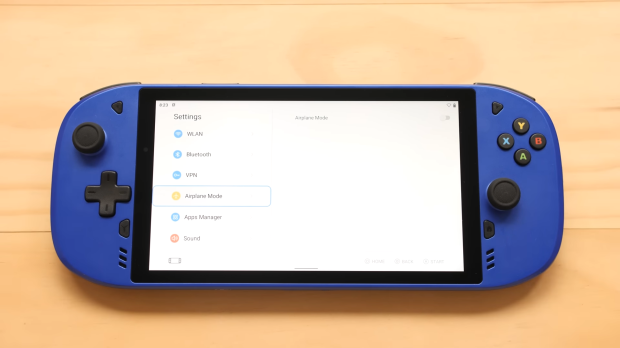Lenovo has plans to introduce its own PC gaming handheld, sources tell Windows Central's Jez Corden.

Chinese tech firm Lenovo will be the latest to enter the growing gaming handheld market. New reports indicate that Lenovo is working on its own Legion Go device that will take aim at Valve's Steam Deck, the ASUS ROG Ally, and the AYANEO PC gaming handhelds.
The Legion Go is expected to have an 8-inch screen and leverage the Windows 11 operating system for more widespread app and gaming support. As far as performance goes, sources tell Windows Central that the Legion Go is currently powered by AMD's new Phoenix APU processors, and it's possible that the Legion Go could utilize a custom variant to deliver high-end gaming similar to the customized ROG Ally Z1 Extreme chip that is built off of the Ryzen 7 7840U SoC.
Official details on the Legion Go are nonexistent, and it sounds like Lenovo is currently just experimenting with and testing the new device rather than readying it for mass production. There's also a possibility that the Legion Go just won't launch at all.
Remember that Lenovo was working on Android mobile-powered handheld called the Legion Play, which was essentially the company's answer to the Logitech G Cloud and the Razer Edge. The Legion Play had never been launched and it's possible that it was scrapped in favor of the Legion Go PC gaming handheld.
The handheld PC gaming market aims to introduce a new 3-in-1 hybrid that allows users to play PC games locally, via an on-the-go-handheld, or console games remotely either through cloud gaming (xCloud, PlayStation Plus) or via Xbox and/or PlayStation Remote Play functionality.



